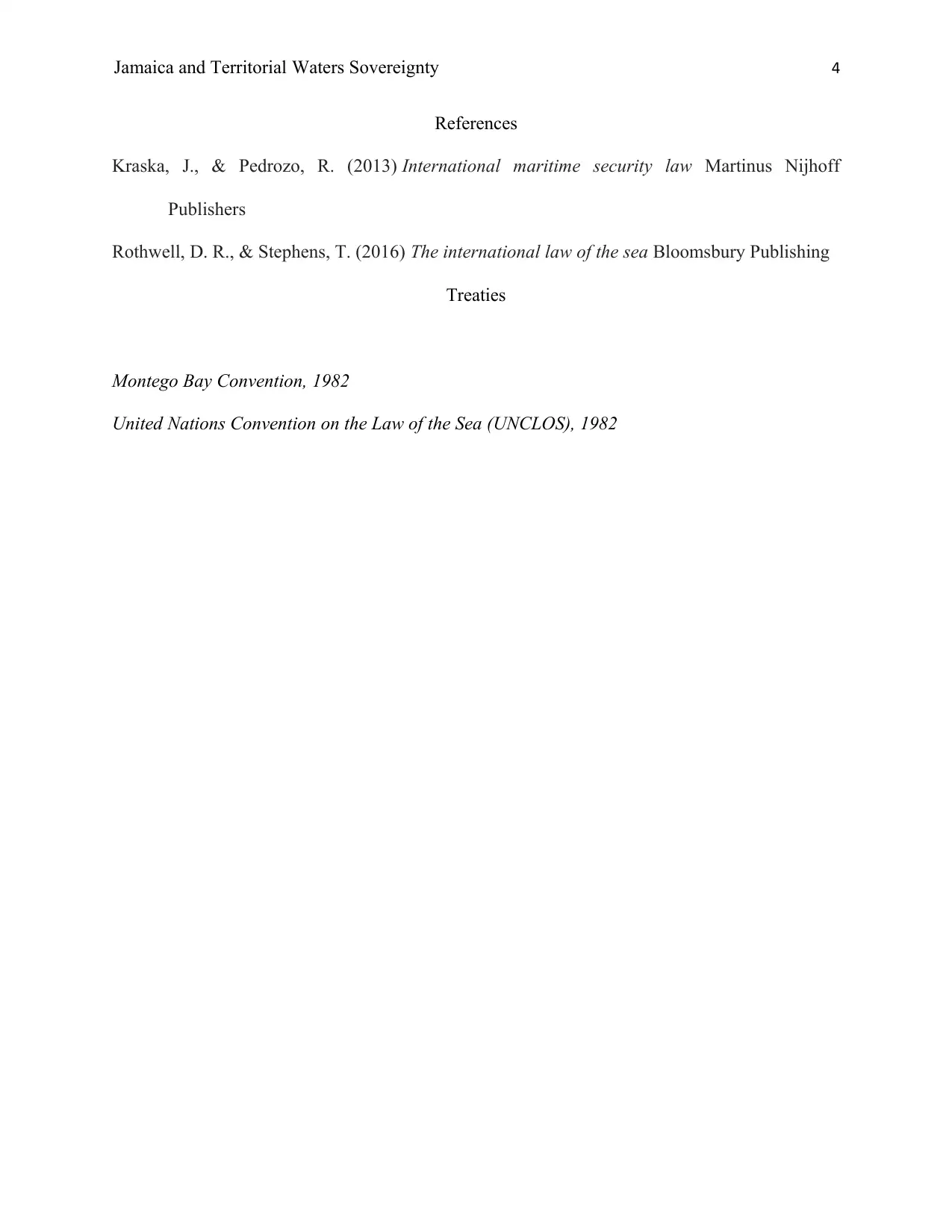Sovereign Rights in Jamaica's Territorial Waters: Law and Legislation
VerifiedAdded on 2023/05/30
|4
|680
|407
Essay
AI Summary
This essay examines Jamaica's sovereign rights within its territorial waters, providing a comprehensive legal analysis. It begins with an introduction to territorial waters, defining them and explaining the concept of sovereignty as it relates to maritime zones, including internal waters, the territorial sea, and the exclusive economic zone, as defined by the United Nations Convention on the Law of the Sea (UNCLOS). The essay details Jamaica's status as an archipelagic state, which grants it additional rights over archipelagic waters. It highlights the extent of Jamaica's territorial claims, including the contiguous zone and continental shelf rights. The discussion further covers Jamaica's jurisdiction over ships on the high seas, with exceptions for piracy and other illegal activities. The essay concludes by summarizing Jamaica's sovereign rights, emphasizing the role of UNCLOS, the Montego Bay Convention, and the Geneva Convention. It also mentions Jamaica's maritime boundary agreements with Colombia and Cuba. This essay provides a detailed overview of Jamaica's sovereign rights, supported by relevant legislation and international conventions.
1 out of 4









![[object Object]](/_next/static/media/star-bottom.7253800d.svg)